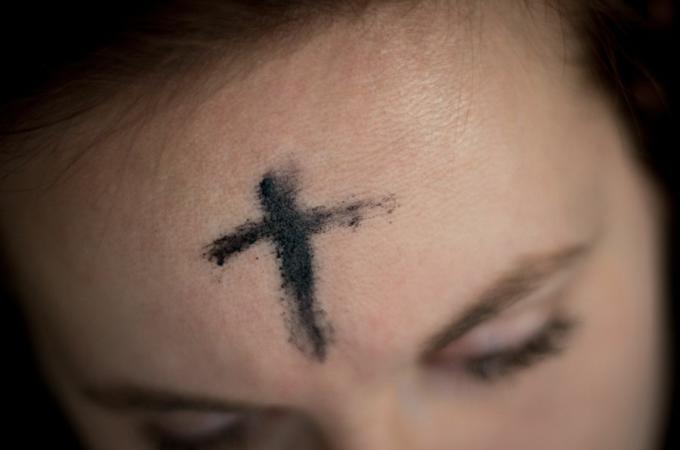'Return to dust?'
Q. Ash Wednesday is nearing and soon we will receive ashes on our forehead and be told, "Remember that you are dust and to dust you shall return." With Catholic teaching about an eventual resurrection after death, why are we told such a seemingly morbid and fatalistic thing?
Why not simply say something like, "These ashes are a sign of repentance?" It seems to me that the emphasis should be on the fact that, even though we are stained by sin, we will live again. Could you comment? (southern Indiana)
A. In recent years, there has been an option with regard to the distribution of ashes. Those administering them may say the traditional "Remember that you are dust ..." or they may opt instead to use the formula, "Repent and believe in the Gospel."
I always choose the latter, for some of the same reasons that you have cited. The "dust" line does, though, remind us that we are both human and mortal, and it is taken directly from the Book of Genesis (3:19).
This year, 2021, the distribution of ashes will look a bit different in Catholic parishes. Due to the COVID-19 pandemic, the Vatican has recommended that ashes not be applied directly to the forehead but instead be sprinkled over the head of those receiving them.
This had already been the method used in some parts of the world, such as Italy. This year, the celebrant will say one of the two formulae only once, prior to distributing the ashes, to avoid having to speak in close proximity to the one receiving them.
Q. I have a sister-in-law who thinks that she cannot receive holy Communion after a divorce. This is the situation. She had been married for 28 years. She was married in a Catholic Church ceremony officiated both by a priest and a minister. (The man she married was a Protestant.) He breached the marriage vows, had an affair and wanted a divorce.
My sister-in-law was faithful to her wedding vows and since her divorce, has drawn closer to the Lord and to her Catholic faith. She would love to be able to receive the Eucharist but thinks that she cannot since she is divorced. Can you clarify the Catholic teaching on this? (City and state withheld)
A. I am assuming -- since you did not say differently -- that your sister-in-law has not remarried. Had she done so, in a ceremony not approved by the Catholic Church, she would be correct in refraining from holy Communion. More likely, though, she is under the common misimpression that a civil divorce, in and by itself, disqualifies a Catholic from the Eucharist.
That is simply not so, as explained by the Catechism of the Catholic Church: "If civil divorce remains the only possible way of ensuring certain legal rights, the care of the children, or the protection of inheritance, it can be tolerated and does not constitute a moral offense" (No. 2383).
Sometimes a divorce can occur with little, or even no, responsibility on the part of one of the spouses; and even a spouse who bears major responsibility for the breakup of a marriage can go to confession and be absolved.
Catholics who are separated or divorced, and who have not remarried outside of the Church, are in good standing in the Church and can receive all of the sacraments, including holy Communion. They are encouraged to participate fully in all aspects of parish life and are invited to serve in any ministries including lectors, extraordinary ministers of holy Communion and catechists.
- Father Kenneth Doyle is a columnist for Catholic News Service



















